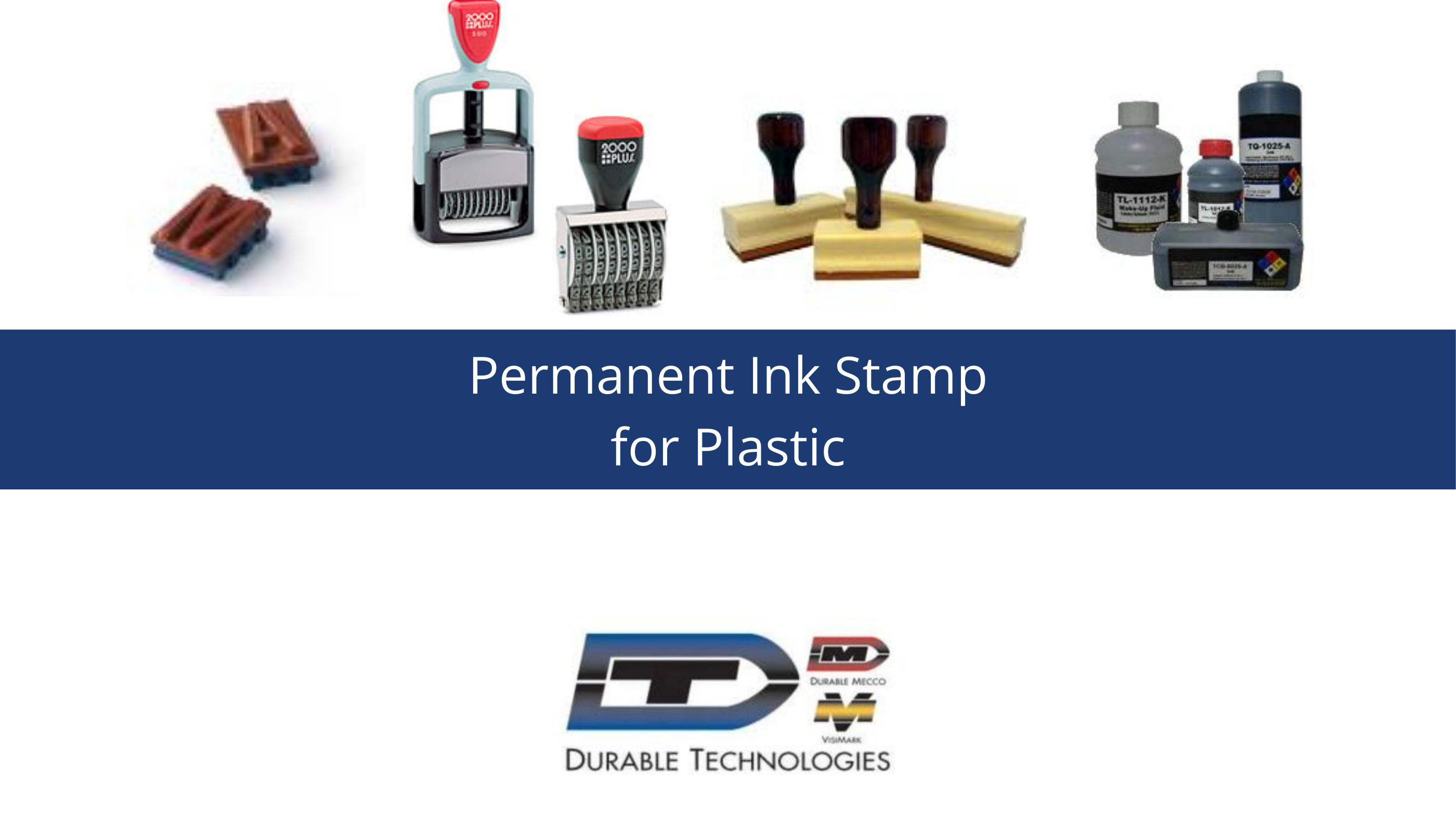
When an application necessitates marking on plastic surfaces, a permanent ink stamp emerges as a highly effective marking solution. These stamps are favored for their versatility, resilience, portability, and cost-effectiveness.
 Permanent Ink Stamps designed for plastic applications offer a range of benefits. They provide flexibility in marking various plastic surfaces, ensuring durability even under challenging conditions. Moreover, they are easily transportable, facilitating their use across different work environments. Additionally, their low cost makes them an economical choice for marking needs.
Permanent Ink Stamps designed for plastic applications offer a range of benefits. They provide flexibility in marking various plastic surfaces, ensuring durability even under challenging conditions. Moreover, they are easily transportable, facilitating their use across different work environments. Additionally, their low cost makes them an economical choice for marking needs.
Typically, permanent ink stamps for plastic incorporate alphanumeric or numeral characters. They come in various configurations, with options for different numbers of bands and character sizes. Furthermore, these stamps can be tailored to suit specific marking requirements, offering a customized solution to meet diverse needs.
Rubber stamps are also widely utilized for marking on plastic surfaces. They share similar advantages with permanent ink stamps, with the added convenience of being available in self-inking formats. This feature streamlines the marking process, enhancing efficiency and productivity in various applications.
Permanent Ink Stamp Applications
Permanent ink stamps for plastic are useful for many applications due to their versatility and durability, including:
-
Manufacturing Industry: Used for marking plastic components, packaging materials, and products with important information such as serial numbers, manufacturing dates, and part numbers.
-
Medical: Employed for labeling medical devices, equipment, and packaging with essential details like expiration dates, lot numbers, and sterilization indicators.
-
Retail: Utilized to mark plastic packaging of consumer goods with branding logos, barcodes, batch numbers, and price information.
-
Logistics and Warehousing: Applied for marking plastic crates, pallets, and containers with shipment details, tracking numbers, destination codes, and handling instructions.
-
Automotive Industry: Used for marking plastic parts, components, and packaging with identification codes, production dates, and regulatory compliance information.
-
Electronics Manufacturing: Employed to mark plastic housings, circuit boards, and components with serial numbers, model numbers, and production data for traceability and quality control.
-
Construction: Utilized to mark plastic pipes, fittings, and construction materials with sizing information, batch numbers, and safety warnings.
-
Food and Beverage Industry: Applied for marking plastic packaging of food and beverage products with expiry dates, batch codes, nutritional information, and allergy warnings.
-
Utilities and Infrastructure: Used for marking plastic utility pipes, cables, and conduits with identification codes, installation dates, and maintenance instructions.
-
Security and Identification: Employed to mark plastic ID cards, badges, and security seals with personal information, access credentials, and authentication features.
Permanent Ink Types
There are a lot of different inks out there, but we offer many inks specifically designed with plastic applications in mind, including:
#1250 All-Purpose Air-Dry Ink for Non-Porous Surfaces
- The #1250 all-purpose air-dry ink is ideal for our Mark II Stamp Pad. Creates rub-resistant, waterproof imprints on glass, plastic, metal, polypropylene, rubber, and other hard-to-mark non-porous surfaces. Imprint dries in less than 20 seconds on most substrates.
- Meets Government specification A-A-208, Rev. B Type 1, and TT-I-1795A, Type 1.
- Dry Time: >30 seconds
- Suggested for use in the Mark II Stamp Pad or our metal industrial stamp pads with natural rubber stamps.
#628 Pigmented Ink for Non-Porous Surfaces
- #628 ink is our stock pigmented ink. Available in vivid colors, it provides excellent adhesion on treated polyethylene and almost all non-porous surfaces.
- Dry Time: 10-15 seconds
- Suggested for use in the Mark II Stamp Pad with natural rubber stamps.
#432 Solvent Resistant Ink
- #432 is designed to resist alcohol, freon, degreasers, cleaning fluids, trichloroethylene, soap, and water. The longer the imprint is given to dry, the more resistant the impression becomes. Suggested applications include metal, plastic, printed circuit boards, polyethylene, and polypropylene.
- Dry Time: 10-30 seconds
- Suggested for use with natural rubber stamps and metal industrial stamp pads.
Click the buttons below to request a quote or learn more about our permanent ink and rubber stamp options for marking plastic.





